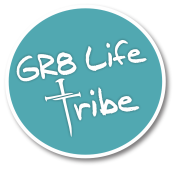MODULE 5
What Is Spiritual Health?
Defining Spiritual Health
What comes to mind when you hear the word spirituality? Some people call it faith, hope, or trust. Some equate it with joy, inner peace, or a higher power, and some aren’t exactly sure how to describe it! Spiritual health can feel less tangible than the other pillars of whole-person health because, at its very root, spirituality is about what we can’t see.
Spiritual health is an incredibly unique journey that’s grounded in a few “healthy basics”: connection to the bigger picture of something greater, acceptance of your human role (your personal identity) within that bigger picture, and integration of these two elements into a sense of purpose, which creates deeper meaning in your life.
Awareness
Most often, the first step in a spiritual health journey is awareness of spirituality itself. It’s awareness of something greater – a bigger picture of life – and faith in that something greater, even if that “something” is hard to describe or you don’t fully understand it. It’s also awareness that you came from something greater and are connected to it.
With this awareness comes faith, or trust, that you’ll be taken care of, no matter what happens. It’s the belief that whatever is happening for you now – including obstacles and challenges – is preparing you for the future. Since it’s impossible to know what’s in the future, you have to trust that things will align.
A Bio-Individual Relationship
The next step is often acceptance of and compassion for your bio-individual relationship to spirituality. More than any other pillar of whole-person health, spiritual health is about finding your own way. Maybe you believe that we’re here on earth to learn something or inspire others. Maybe your thoughts of why we’re here are constantly changing, but you find consistent connection to the greater energy through nature. The goal is to connect with and practice your spirituality in ways that work for you.
Following Your Path
Again, your personal relationship to spirituality requires trust in your unique path. Many people spend a long time looking for a community, purpose, or ideology that feels like a good fit. You won’t always feel like you belong, and that’s okay. It’s important to recognize that it will be messy and take work.
Spiritual health isn’t about being zen all the time or meditating or practicing yoga every single day. These are often the images that come to mind, and they portray spiritual health as peaceful and “perfect.” However, anything can be spiritual, from walking in nature to sharing a smile with a neighbor. In fact, struggles and limitations are powerful components of spirituality. Your spiritual journey will likely be frustrating, and you’ll make mistakes along the way. You’re human! The goal isn’t perfection; it’s to trust that you’re exactly where you’re supposed to be.
Ongoing Self-Care
Once you have awareness and are able to honor your bio-individual connection to spirituality, the final step is often maintenance. Keep checking in, nurture it, and invest in strengthening the connection, as you would a friendship. In the previous module, you learned about nurturing the relationship you have with yourself and your relationships with others. Spiritual health is about nurturing your relationship with the greater universe, energy, or however you conceive it. Because of this, you should never feel truly alone; your spiritual connection is always there for you. Yet again, trust is a key player.
